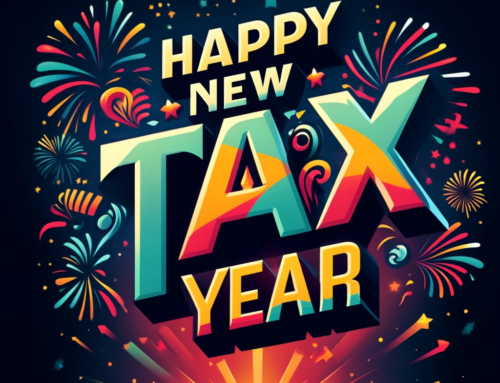If you trade through a limited company and take your income as a mixture of PAYE salary and dividends, then you will probably be worse off after April 2016. This is because of the impending changes to the way dividends are going to be taxed.
This change affects dividends you receive after April 2016 and are explained in the illustrations below.
Assuming you take £39,000 from your business a year – made up of a salary of £8,000 and dividends of £31,000 in the tax year 2015/16 you would be taxed like this:
| Salary | £8,000 |
|---|---|
| Grossed up dividends (£31,000/90*100) | £34,444 |
| Total Taxable Income | £42,444 |
| Personal Allowance | (11,000) |
| Taxable Income | £31,444 |
| Tax @10% Dividends Rate | £3,444 |
| Less Gross uptake (£34,444 – £31,000) | (£3,444) |
| Tax To Pay | £0 |
As you can see, no further tax would be due on the amount you have taken. Of course, your company would have paid 20% on its profits to allow you to take the dividend.
Grossed Up Dividends
If you are wondering why the dividends are “Grossed Up” in the example above, it’s because UK shareholders receive dividends with a tax credit of 10%. This means that a notional 10% tax has already been paid by the company paying the dividend and the amount you receive as a shareholder is “net” of that tax payment.
But in order to calculate your individual tax liability on the income, which may be higher than 10%, you have to “gross up” the dividend – that is, add back the tax deducted – and work out your tax liability from the gross figure. This 10% gross up is then deducted from your final tax liability.
So as it stands, if you are a basic rate tax payer, you won’t pay any more tax on dividends taken, as illustrated above, however, if you are a higher rate payer, there is extra tax to pay on the dividends you receive.
It’s All Change
This has been the situation for a long time and shareholders of limited companies have got used to paying no tax personally in the situation above.
However, the screws are being tightened and things have changed.
Let’s assume you take the same £39,000 from your business, made up of a salary of £8,000 and dividends of £31,000 but now it’s 2016/17, you would be taxed like this:
| Salary | £8,000 |
|---|---|
| Dividends (Not Grossed Up) | £31,000 |
| Total Taxable Income | £39,000 |
| Personal Allowance | (11,000) |
| Taxable Income | £28,000 |
| Tax Dividends Tax Free Allowance (£5,000) | £0 |
| Tax @ 7.5% Dividends Rate (£28K less £5K) | (£1,725) |
| Tax To Pay | £1,725 |
(We have assumed the personal allowance and basic rate won’t change – in reality this will, but not by significant amounts)
As you can see, where previously you would have paid £0, you now pay £1,725. Plus HMRC will want 50% of the amount due upfront for the next tax year. So this tax payer will face a bill on 31st January 2018 of £2,587.
The situation is worse if you are a higher rate tax payer because instead of a 25% tax rate under the current rules, you will be paying 32.5% tax on the dividends you receive in the higher take.
It’s Not All Bad
There is a slight sweetener in that corporation tax rates are set to fall in 2017 to 19%, and to 18% by 2020 but all in all, you are more than likely to be worse off with this change.
I can kind of see the reasoning behind this change. It’s the government going to war on the contractors who start limited companies just to save tax, but many of our clients, who are genuine wealth generators, employers and contributors to society, are once again suffering at the hands of the taxman.
Petitions Against Dividend Tax
There are several petitions against this new tax.
The most widely publicised petition is here: https://petition.parliament.uk/petitions/106525 so if you are a bit miffed by it all why not sign it.






